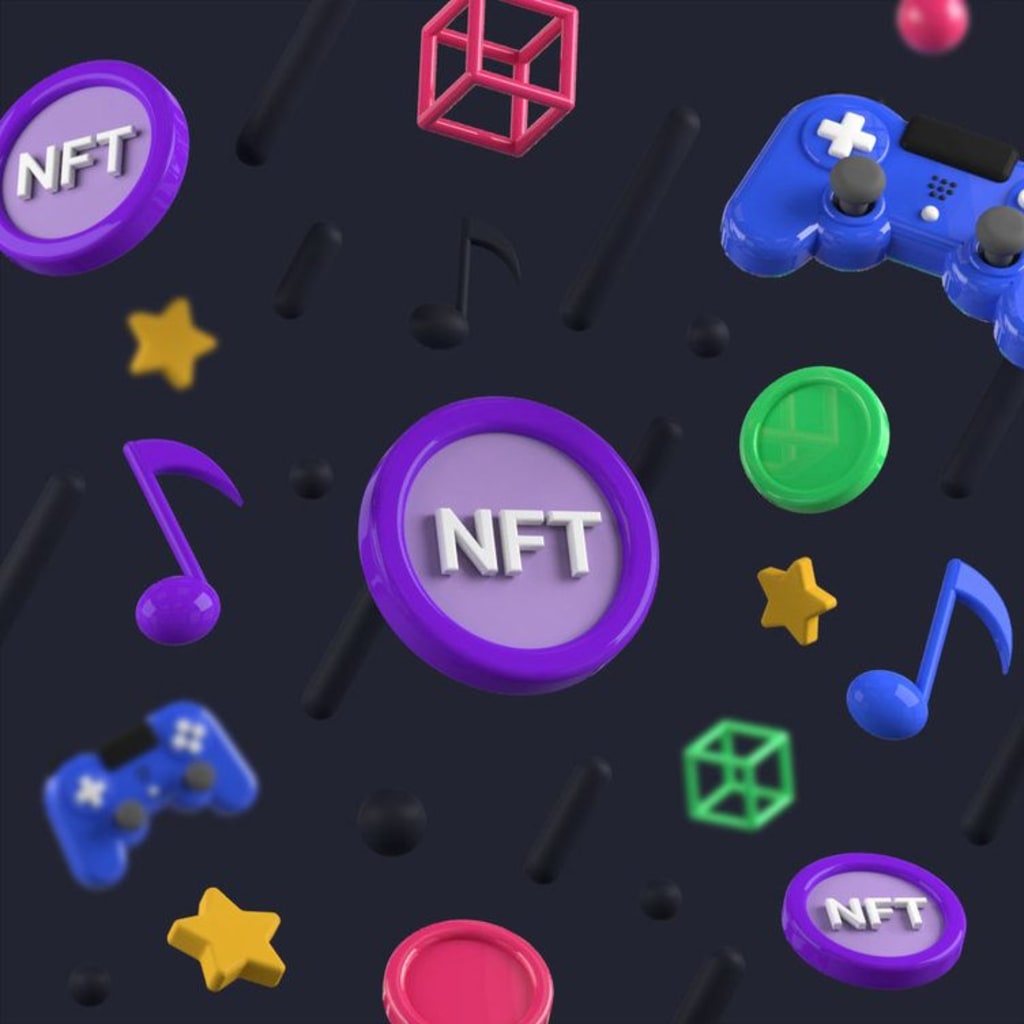"Empowering Gamers: How Blockchain Technology Puts Players in Control"
"Revolutionizing Gaming: Unleashing Player Empowerment through Blockchain Technology"

In the ever-evolving landscape of the gaming industry, blockchain technology has emerged as a game-changer, offering new possibilities and empowering gamers like never before. By leveraging the decentralized nature of blockchain, gamers can experience enhanced ownership, security, and control over their virtual assets. This article explores the profound impact of blockchain technology on the gaming industry, highlighting its transformative effects on ownership and asset management, security and trust, player-driven economies, player ownership rights, reward systems, and various use cases within the gaming ecosystem.
Understanding Blockchain Technology
Blockchain technology is a decentralized and distributed ledger system that enables the secure and transparent recording of transactions. It is built on a network of interconnected computers known as nodes, which work together to validate and record transactions in a sequential chain of blocks. Each block contains a set of transactions, and once added to the chain, it becomes virtually immutable, ensuring the integrity and transparency of the data.
Transforming Ownership and Asset Management
One of the key advantages of blockchain technology in gaming is its ability to transform ownership and asset management. Traditional gaming models often restrict players from having true ownership of in-game assets, leading to limitations and vulnerabilities. However, with blockchain technology, players can truly own their virtual assets through the use of non-fungible tokens (NFTs).
NFTs are unique digital tokens that represent ownership of a specific item or asset. They are created and stored on the blockchain, providing a secure and verifiable proof of ownership. By utilizing NFTs, gamers have the freedom to buy, sell, and trade their virtual assets outside of the game's ecosystem, allowing for a more dynamic and robust player-driven economy.
Enhancing Security and Trust
Another significant advantage of blockchain technology in gaming is its enhanced security and trust. Traditional gaming systems are susceptible to hacks, fraud, and cheating, which can undermine the gaming experience and erode player confidence. However, blockchain technology provides a robust security infrastructure that mitigates these risks.
Blockchain's decentralized nature ensures that no single entity has control over the entire network, making it extremely difficult for malicious actors to manipulate or compromise the system. Additionally, the use of smart contracts, which are self-executing contracts with predefined rules encoded on the blockchain, eliminates the need for intermediaries and ensures the execution of transactions in a trustless manner.
Enabling Player-driven Economies
Blockchain technology empowers players by enabling the creation of player-driven economies within gaming ecosystems. In traditional gaming models, developers retain control over the economy, dictating the value and availability of in-game items. However, with blockchain, players have the ability to determine the value of their assets based on supply and demand dynamics.
By allowing players to buy, sell, and trade virtual assets directly with each other, blockchain technology facilitates a more open and transparent marketplace. This decentralization of the economy puts players in control, fostering a sense of ownership and empowerment within the gaming community.
Establishing Player Ownership Rights
Blockchain technology also addresses the issue of player ownership rights, which has been a contentious topic in the gaming industry. In many cases, players invest significant time and resources into acquiring in-game assets, only to find their ownership rights limited or revoked by game developers.
With blockchain-based gaming platforms, ownership rights are recorded on the blockchain, ensuring that players have undisputed ownership and control over their assets. This establishes a new paradigm where players are recognized as the true owners of their virtual possessions, giving them the freedom to use, transfer, or monetize their assets as they see fit.
Enabling Reward Systems and Incentives
Furthermore, the transparent and auditable nature of blockchain technology ensures the fairness and integrity of reward systems. By recording transactions on the blockchain, players can trust that their rewards are distributed accurately and that no fraudulent activities occur. This instills a sense of trust and fairness among players, further enhancing their gaming experience.
Exploring Use Cases of Blockchain in Gaming
The potential applications of blockchain technology in gaming extend beyond ownership, security, and rewards. Various use cases are being explored, showcasing the versatility and adaptability of blockchain within the gaming ecosystem.
One prominent use case is the development of blockchain-based NFT gaming platforms. These platforms leverage the unique properties of NFTs to create immersive gaming experiences, where players can collect, trade, and interact with rare and valuable in-game assets. NFT gaming platforms provide a decentralized and transparent environment, allowing players to fully engage with the virtual world while maintaining ownership and control over their assets.
Another exciting use case is the integration of blockchain technology in esports. Esports has experienced tremendous growth in recent years, attracting a large audience and substantial investments. By incorporating blockchain, esports tournaments and competitions can enhance transparency, secure prize distributions, and enable verified player statistics and rankings. This not only adds a layer of trust and credibility to esports but also opens up new opportunities for fan engagement and monetization.
Furthermore, blockchain technology can facilitate the development of cross-platform gaming experiences. Traditionally, games are often limited to specific platforms, creating barriers for players who want to interact and play with others using different devices. With blockchain, developers can create interoperable gaming ecosystems, where players from different platforms can seamlessly connect, trade assets, and engage in multiplayer experiences. This fosters inclusivity and expands the player base, creating a more vibrant and connected gaming community.
Conclusion
Blockchain technology is revolutionizing the gaming industry by empowering players and placing them in control of their gaming experiences. Through the use of blockchain, players can enjoy true ownership of virtual assets, enhanced security and trust, and participate in player-driven economies. The establishment of player ownership rights, implementation of reward systems, and exploration of various use cases further demonstrate the transformative potential of blockchain technology in gaming.
About the Creator
tompeter1123
https://www.jump.trade/





Comments
There are no comments for this story
Be the first to respond and start the conversation.